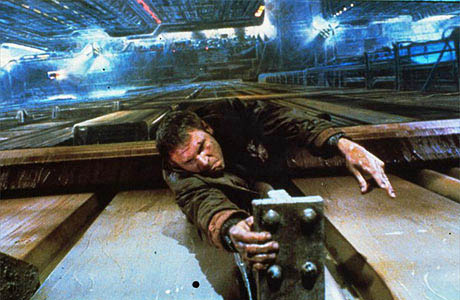science fiction goes mainstream
As special effects technology has gotten cheaper, Hollywood has rushed to embrace genres that were once niche products. At one point, an action blockbuster that stretched the laws of nature meant Rocky Balboa taking 43 million punches with the only adverse effect being a slight speech impediment.
Yet in the last ten to fifteen years (probably dating back to the Matrix), science and technology has gone mainstream. Before that, mainstream movies that glorified science and technology were few and far between. Movies like Terminator 2 had universal appeal, but most science fiction movie audiences fell into more stratified demographics (which, let’s face it, is a fancy term for geeks) like the Star Trek audience. Even critically acclaimed movies like Blade Runner or 2001: A Space Odyssey were rarely box office smashes to the extent of a Ghost or Pretty Woman.
There’s a real distinction between a movie like Titanic that uses a ton of effects to tell a non-scientific story, and a movie that actively promotes science and technology like The Matrix. The movies that I am singling out are the ones that actively discuss and exhibit technology on the bleeding edge. All things that good science fiction novels do.
All the genuine advances in science and technology have made these special effects extravaganzas possible. Bringing comic books and science fiction to life can be done with incredible special effects, unfortunately often at the expense of incredible storytelling.
Yet we live in an age where all kinds of *genuine* science and technology strides are being made, and they are rarely well incorporated. When writers make an effort to plausibly advance technologies in their films, the result can be sublime. One of the things that made Michael Crichton’s storytelling so compelling was not just his gigantic characters – it was also a vigorously researched and carefully advanced technological view of the world. His Jurassic Park concept for how dinosaurs could be clones was plausible – at least plausible enough that you didn’t have to ignore truck sized holes in the plot.
It’s okay to ask the audience to believe in one implausible event if it’s integral to the story. A superhero origin, a crazy coincidence, an unlikely pairing. Yet Hollywood often assumes that if it can get away with one implausible event, then it’s okay if everything in the movie is unmoored from reality. This is what separates brilliant movies from pedestrian ones. You can still make money with a well cast and produced film, but to have a real artistic impact – you can’t ignore all the laws of nature. That’s a law of artistic impact.



